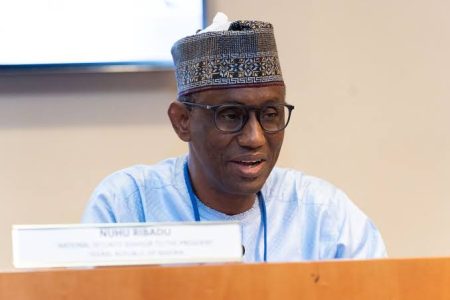The construction industry, a crucial driver of economic growth, faces a significant digital deficit despite its contributions to GDP and its support of other sectors. This lag in adopting digital tools and processes was highlighted at the Lagos Architects’ Forum, where industry stakeholders discussed the theme of “Digital Transformation in Architecture – Building Smart Cities.” The COVID-19 pandemic, while disruptive, inadvertently accelerated the adoption of digital technologies within the construction sector, forcing organizations to embrace digital solutions for operational efficiency and business continuity. However, the transition to digitalization remains ongoing, with the industry lacking standardized procedures and well-defined frameworks for seamless technology integration. This has resulted in a fragmented approach to digitalization, with some technologies not yet achieving optimal cost-effectiveness.
Research into the digital transformation of architecture is still in its nascent stages, primarily focused on identifying the benefits and impact of digital technology, along with potential barriers and drivers. The emphasis remains on broad analysis rather than specific organizational case studies. This early stage of research, combined with the fragmented nature of the construction field, necessitates integrative review methodology and systematic research to develop a comprehensive understanding of how digital transformation is reshaping architecture, the cornerstone of all construction projects. The Lagos State government, recognizing the importance of digital transformation across all sectors, has committed to fostering this evolution, demonstrating a significant interest in creating smarter cities through effective project management and streamlined processes. The government emphasizes the importance of collaborating with professional bodies, such as the Nigerian Institute of Architects (NIA), to navigate current economic challenges and leverage innovation and skill sharing.
Lagos State, a dynamic megacity grappling with urbanization challenges, requires innovative solutions. The forum emphasized the transformative potential of technology across various sectors, with architecture being no exception. Digital tools, including advanced modeling software, virtual reality, big data analytics, and artificial intelligence, are revolutionizing the design, planning, and construction phases of building projects. The forum served as a valuable platform for exploring these advancements, learning from global experts, exchanging experiences, and envisioning a future where digital transformation contributes to a smarter, more sustainable, and livable Lagos. The discussions underscore the urgency of adopting digital solutions to address the evolving needs of a rapidly growing urban environment.
The forum also provided an opportunity to recognize the significant contributions of senior professionals in the field of architecture. Two prominent figures, Margaret Alamutu, Partner at Tao Alamutu and Partners and Director at Clay Resources Limited, and Gbolahan Oki, Permanent Secretary, Lagos State Ministry of Urban Development, were commended for their enduring impact on the profession, especially within Lagos State. Their visionary designs, focus on sustainable and culturally relevant architecture, and commitment to mentoring emerging talent were acknowledged as invaluable contributions to the architectural landscape. Their leadership and innovative approaches have fostered growth and collaboration within the profession, leaving a lasting impression on the city’s built environment.
The contributions of these individuals extend beyond their professional accomplishments, encompassing their dedication to advancing the field of architecture and inspiring future generations of architects. Their ability to blend functionality, aesthetics, and cultural sensitivity within their designs has not only enhanced the urban landscape but also improved the lives of the city’s residents. The recognition bestowed upon them reflects the deep respect and admiration they have garnered within the architectural community. Their continued involvement and guidance are anticipated to further propel the profession forward and inspire further innovation and development.
The success of the forum, facilitated by the dedication and meticulous planning of the organizing committee, particularly the Executive Committee of the NIA Lagos State Chapter, further cements the importance of collaboration and knowledge sharing within the architectural community. The event not only provided a platform for discussing critical issues and celebrating achievements but also fostered a sense of collective purpose and a shared vision for the future of architecture in Lagos. It emphasized the crucial role architects play in shaping the future of urban development and underscored the importance of embracing digital technologies to create more sustainable, resilient, and livable cities. The recognition of senior professionals serves as a testament to the enduring impact of mentorship and the power of inspiring future generations to push the boundaries of architectural design and innovation.













